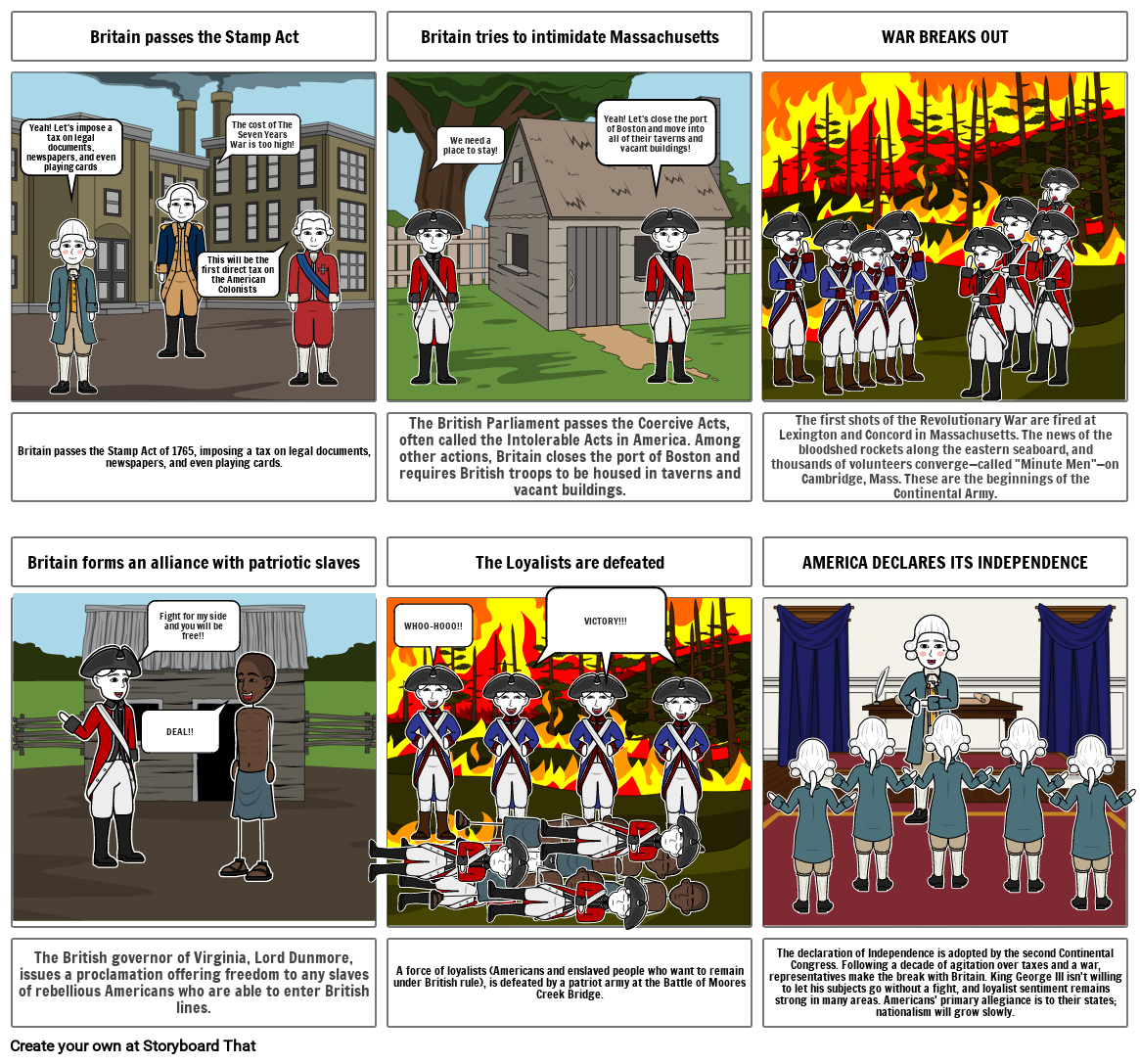Revolution

Storyboard Text
- Britain passes the Stamp Act
- Yeah! Let's impose a tax on legal documents, newspapers, and even playing cards
- This will be the first direct tax on the American Colonists
- The cost of The Seven Years War is too high!
- Britain tries to intimidate Massachusetts
- We need a place to stay!
- Yeah! Let's close the port of Boston and move into all of their taverns and vacant buildings!
- WAR BREAKS OUT
- Britain passes the Stamp Act of 1765, imposing a tax on legal documents, newspapers, and even playing cards.
- Britain forms an alliance with patriotic slaves
- Fight for my side and you will be free!!
- The British Parliament passes the Coercive Acts, often called the Intolerable Acts in America. Among other actions, Britain closes the port of Boston and requires British troops to be housed in taverns and vacant buildings.
- The Loyalists are defeated
- WHOO-HOOO!!
- VICTORY!!!
- The first shots of the Revolutionary War are fired at Lexington and Concord in Massachusetts. The news of the bloodshed rockets along the eastern seaboard, and thousands of volunteers converge—called "Minute Men"—on Cambridge, Mass. These are the beginnings of the Continental Army.
- AMERICA DECLARES ITS INDEPENDENCE
- The British governor of Virginia, Lord Dunmore, issues a proclamation offering freedom to any slaves of rebellious Americans who are able to enter British lines.
- DEAL!!
- A force of loyalists (Americans and enslaved people who want to remain under British rule), is defeated by a patriot army at the Battle of Moores Creek Bridge.
- The declaration of Independence is adopted by the second Continental Congress. Following a decade of agitation over taxes and a war, representatives make the break with Britain. King George III isn't willing to let his subjects go without a fight, and loyalist sentiment remains strong in many areas. Americans' primary allegiance is to their states; nationalism will grow slowly.
Over 30 Million Storyboards Created
No Downloads, No Credit Card, and No Login Needed to Try!
